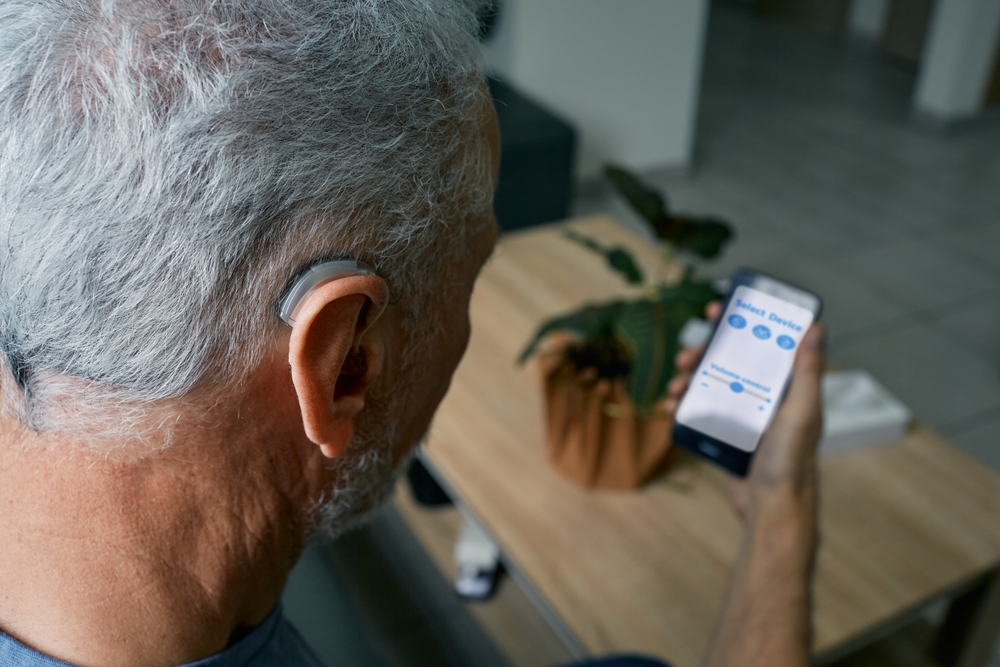Adjusting to a new hearing aid often looks like some combination of two possible outcomes. In the first, you can finally keep up with your daughter while she chats about her new job. And you can hear your grandson make interesting squealing sounds that may or may not be the first utterance of a brand new language.
The second possibility is that everything is too loud all the time and everyone you know sounds a bit funny. Most people find themselves somewhere between these two extremes, and it can take a little time to sort things out.
That’s why we’ve come up with a few tips to speed up the process and help you quickly adjust to your hearing aids.
1. Read while you listen
When you start using hearing aids, your brain might temporarily be a bit confused. Things might sound… off. That’s normal. Hearing loss is often a gradual process, and it can be disorienting to suddenly hear again.
Your brain and your ears suddenly have so much more information than they used to, and it might take some time for the sensory connections between your brain and your ears to realign and recalibrate.
There’s a little trick that can help speed up the recalibration happening in your brain: getting your eyes and your ears to work together. This might take the form of:
- Leaving the closed captions on when you’re watching TV or enjoying Netflix.
- Listening along to an audiobook while you read along.
- Reading the lyrics to your favorite song while you listen.
Your brain is again getting accustomed to the miracle that is hearing. Using visual information to help your brain connect the sounds to the words can help you adjust more quickly.
2. Try not to adjust the volume
It’s tempting to fiddle with the volume on your hearing aid. When your cranky grandchild is screaming, or when your hungry cat is howling, or when your hungry and cranky husband is… speaking–they’re all things you maybe would rather not hear at full volume.
But your real ears don’t have a volume knob, so your physiology isn’t well equipped to handle arbitrary changes in volume.
Set your hearing aid to the correct volume settings (and leave it there–quit fiddling). This can actually help you preserve your hearing over time. Your hearing specialist will provide you with some recommendations on how to handle the volume controls on your hearing aid, but sitting in a quiet room and mentally taking in all the sounds can help you get used to your new baseline.
3. Take things one step at a time
It takes me two weeks to get used to a new pair of tennis shoes. Adjusting to a hearing aid is going to take some time too. Give your ears and brain time to sort things out.
Taking things slow (one day at a time, as they say) also gives you some space to:
- Involve your family: get your loved ones to help you practice making and hearing sounds with your hearing aids in. Board games are a great, fun way to do this (assuming no one flips the table over Monopoly… or files for divorce. Maybe just don’t play Monopoly; there are plenty of other games).
- Keep a hearing journal: It can be difficult to track minute changes in your hearing over time. Keeping a journal can remind you of where you’ve been and how you’ve been hearing. This can help when you go back to your hearing specialist for a follow-up adjustment.
- Set up your tech: Modern hearing aids often use Bluetooth and other connectivity technologies to network to your phone or other devices. This can make simple things like talking on the phone while you’re wearing your hearing aid much more comfortable.
As always, discuss any concerns you have with your hearing specialists, who will be able to give you individualized care and adjustment instructions.
These tips–along with instructions from your hearing specialist–may help you adjust to your hearing aid more quickly. But it’s important to expect and embrace a transition period. You’ll adjust–especially if you give yourself time to get there.


